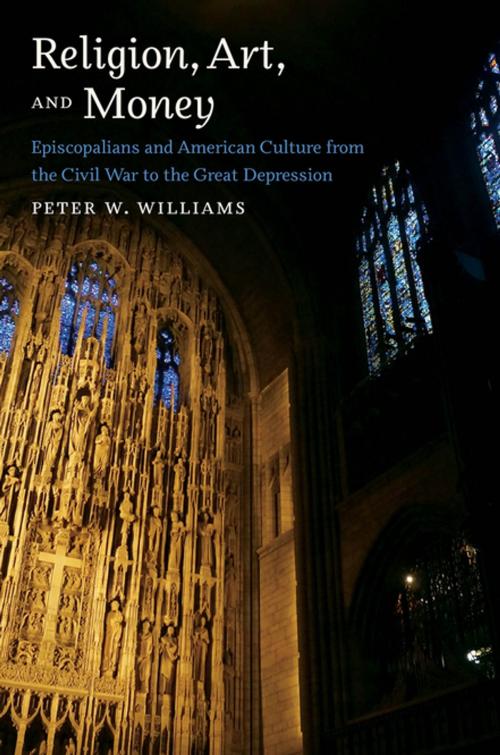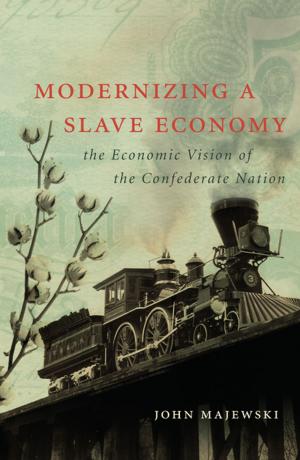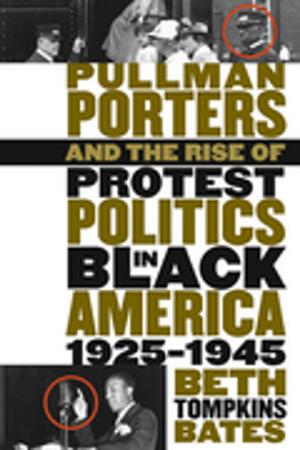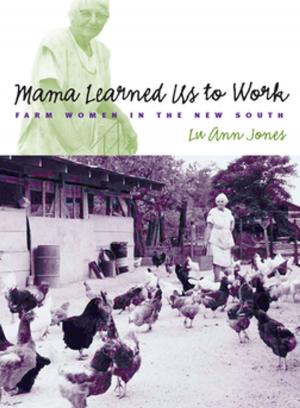Religion, Art, and Money
Episcopalians and American Culture from the Civil War to the Great Depression
Nonfiction, Religion & Spirituality, Christianity, Denominations, Episcopalianism, Christian Literature| Author: | Peter W. Williams | ISBN: | 9781469626987 |
| Publisher: | The University of North Carolina Press | Publication: | February 24, 2016 |
| Imprint: | The University of North Carolina Press | Language: | English |
| Author: | Peter W. Williams |
| ISBN: | 9781469626987 |
| Publisher: | The University of North Carolina Press |
| Publication: | February 24, 2016 |
| Imprint: | The University of North Carolina Press |
| Language: | English |
This cultural history of mainline Protestantism and American cities--most notably, New York City--focuses on wealthy, urban Episcopalians and the influential ways they used their money. Peter W. Williams argues that such Episcopalians, many of them the country's most successful industrialists and financiers, left a deep and lasting mark on American urban culture. Their sense of public responsibility derived from a sacramental theology that gave credit to the material realm as a vehicle for religious experience and moral formation, and they came to be distinguished by their participation in major aesthetic and social welfare endeavors.
Williams traces how the church helped transmit a European-inflected artistic patronage that was adapted to the American scene by clergy and laity intent upon providing moral and aesthetic leadership for a society in flux. Episcopalian influence is most visible today in the churches, cathedrals, and elite boarding schools that stand in many cities and other locations, but Episcopalians also provided major support to the formation of stellar art collections, the performing arts, and the Arts and Crafts movement. Williams argues that Episcopalians thus helped smooth the way for acceptance of materiality in religious culture in a previously iconoclastic, Puritan-influenced society.
This cultural history of mainline Protestantism and American cities--most notably, New York City--focuses on wealthy, urban Episcopalians and the influential ways they used their money. Peter W. Williams argues that such Episcopalians, many of them the country's most successful industrialists and financiers, left a deep and lasting mark on American urban culture. Their sense of public responsibility derived from a sacramental theology that gave credit to the material realm as a vehicle for religious experience and moral formation, and they came to be distinguished by their participation in major aesthetic and social welfare endeavors.
Williams traces how the church helped transmit a European-inflected artistic patronage that was adapted to the American scene by clergy and laity intent upon providing moral and aesthetic leadership for a society in flux. Episcopalian influence is most visible today in the churches, cathedrals, and elite boarding schools that stand in many cities and other locations, but Episcopalians also provided major support to the formation of stellar art collections, the performing arts, and the Arts and Crafts movement. Williams argues that Episcopalians thus helped smooth the way for acceptance of materiality in religious culture in a previously iconoclastic, Puritan-influenced society.















